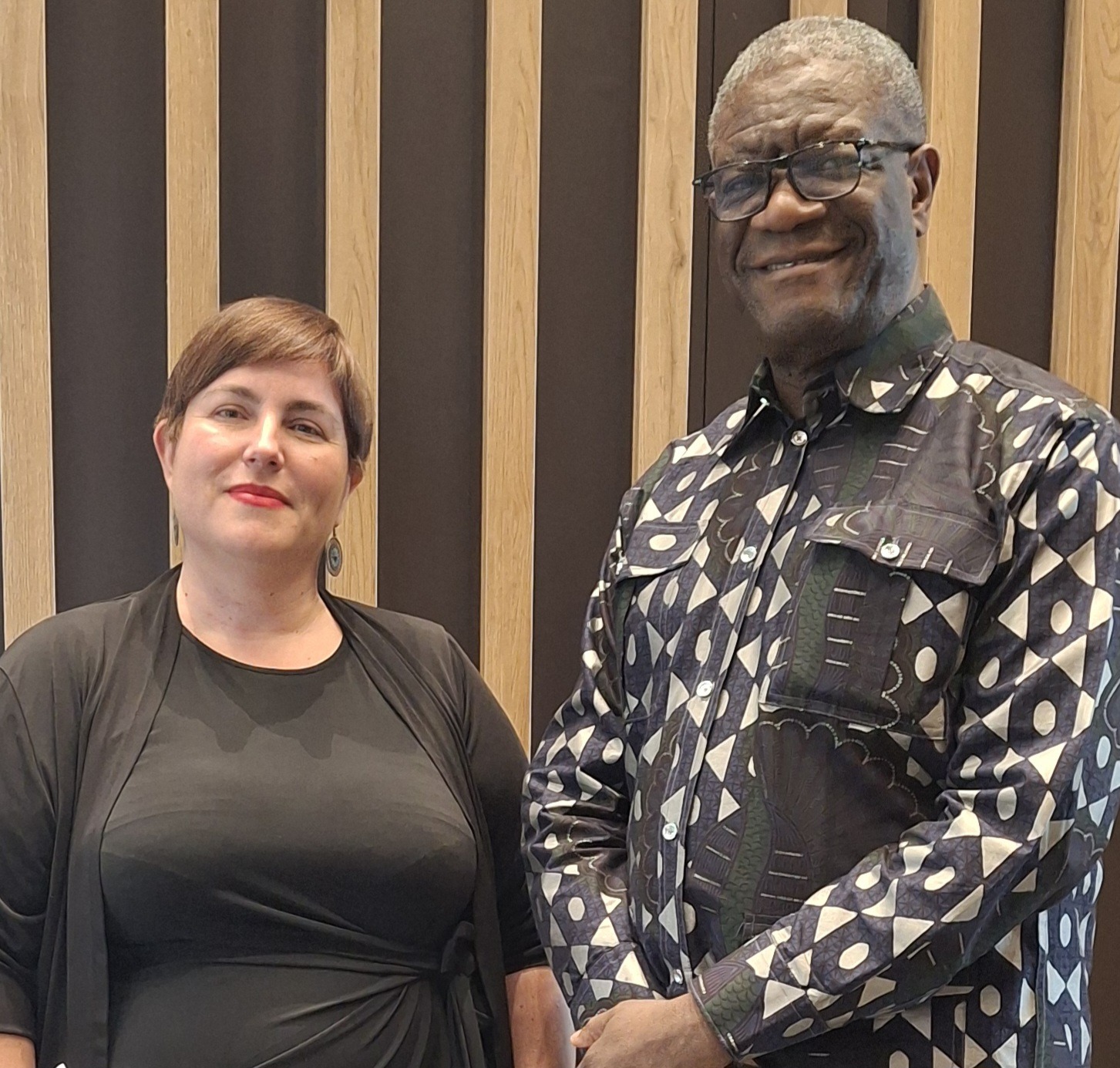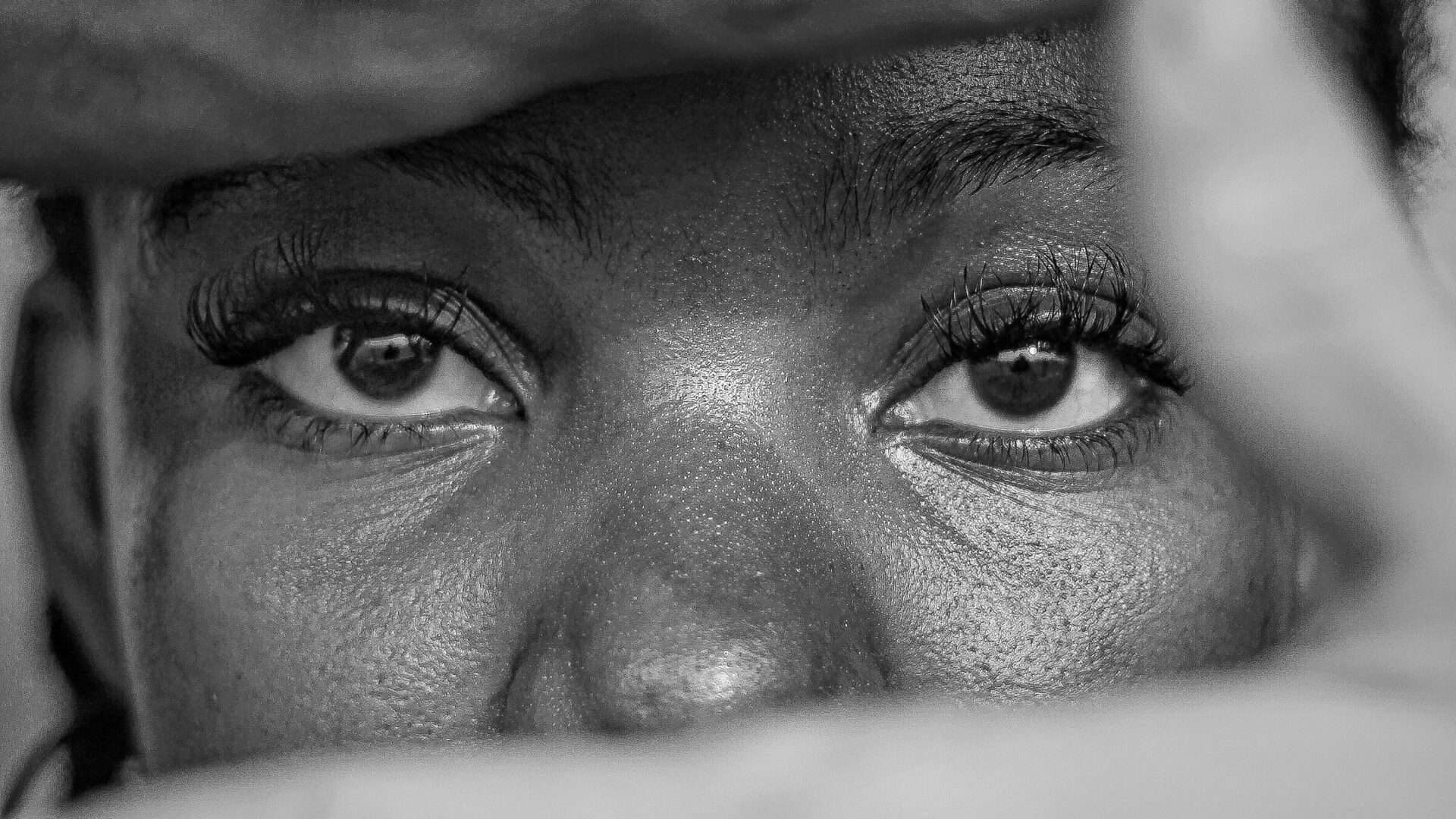
26 of November 2024
by Cláudia Pedra,
Managing Partner, Stone Soup Consulting
In our lives, we meet special people. Often they are people we love, like our parents, partners, siblings or children. Other times they are people with whom we are not related but who provoke a deep emotional reaction. People with an intense love for humanity who radiate this love in their words and gestures. That’s what I felt when I met Dr Mukwege.
I was invited by AGEAS (thank you, Katrien and Steven!) to interview Dr. Denis Mukwege during his visit to Portugal. I reacted in disbelief at the honour of meeting a man who brings hope to humanity. To be able to talk to him. As a human rights activist, he is a man who has inspired me greatly. Those personal heroes we dream of meeting one day but think we’ll never get the chance.
While preparing for the interview, I had the opportunity to read even more about his complex life. How he grew up in Congo during constant armed conflicts. How he realised from an early age how inequality undermined his country or how greed for natural resources motivated armed men to do unspeakable things. How people died without the most basic care. His background shaped him. He grew up in adversity, and that’s what made him want to become a doctor—to be able to heal with his hands what human wickedness had wounded. I read a lot about him, from his childhood to adulthood, and I realised that the interview time would clearly be insufficient to explore a life of dedication to the human cause. Condensing almost seventy years of extraordinary life into 60 minutes is a very difficult feat.
When the first answers came, the audience fell silent. It’s not easy to listen to him without having that reaction. Tears rolled down some faces. He described in detail what he felt when he saw the first victim of sexual violence and what he witnessed. He saw the unimaginable. He couldn’t believe that another human being was capable of such horror without being demented. During his time at the hospital, over the next three months, 45 more women arrived in the same situation. He realised that it was a pattern and not an exceptional situation. His life’s mission became clear. He couldn’t let perpetrators go unpunished, nor could he stop helping their victims.
During his decades as a doctor, he went through experiences that many people wouldn’t be able to bear. From treating thousands of women with horrific wounds from rape and sexual violence, the detailed description of which agonises even the most insensitive of beings, to arriving at the hospital and seeing that armed men had killed his colleagues and even patients in the hospital bed where they were lying. Like any sensitive being, he felt overwhelmed by the violence. It was difficult to find the motivation to continue. But he continued. He worked with female victims of sexual violence in a holistic way, treated them as a surgeon, gave them access to psychological support, and gave them legal support. That’s exactly where he faced most opposition from offenders. After all, empowering women to see their status as victims recognised and receive the reparations they were entitled to exposes the evil of the men who had put them in this situation and exposes greater tragedies, such as rape being used as a weapon of war. It was in his political action, as a human rights activist, that the aggressors saw the greatest threat, rather than in the man who, as a doctor, rebuilds women who have been shattered by violence. That’s why one day violence came to his doorstep, with armed men threatening his family and the death of a dedicated employee. He felt obliged to protect his family and leave the country. That’s what he did. Congo lost a doctor and a women’s rights activist.
But the Panzi hospital, which he helped found, wasn’t destined to end like this. The many women he helped save, not only by rebuilding their bodies but also their minds, were not willing to give up. Many in extreme poverty, with no extra money to donate, they came together to pay his trip and bring back the man who had helped them return to life. Seeing these women’s efforts, he felt the moral imperative to return. The responsibility to return. And so he did, despite the difficult circumstances.
He tried to enlighten the unwary public to the seriousness of what was happening in his country and in his part of the world. Little by little, the world began to realise this. Awards followed, the most notable being the Nobel Peace Prize in 2018. He used all this exposure to talk about sexual violence, and rape as a weapon of war, to describe the enormity of the inhumanity to which the women he treats are subjected. He started community programmes and promoted the education of men so that no more women are subjected to what he treats every day in his hospital (*).
Regarding Congo, he feels that the world doesn’t fully grasp the reality of what is happening there. That the conflict is not something of the past; it is very much present. With around seven million internally displaced people, it’s easy to understand that life is often unbearable in certain regions of their country, and there’s nothing left to do but flee. Unfortunately, sexual violence is so widespread that it doesn’t even stop in the IDP camps. He therefore strongly criticises the international community for allowing this to be the reality of millions of people, neglected in the headlines of the world’s newspapers. After all, if governments invested more in human rights education and violence prevention, there would be no need for doctors specialising in repairing sexual violence.
Throughout the interview, we alternated between Dr. Mukwege’s personal and professional life. Like anyone motivated by causes, they are often inseparable. There is no doctor without the feminist, the unwavering defender of women’s human rights. There is no feminist without the doctor who reconstructs bodies. One doesn’t exist without the other.
Despite a lifetime of dedication to women’s rights, he himself received some accusations of being dedicated to a cause that shouldn’t belong to him. Of being, as a man, the personification of the aggressor. Because for many women, this is the reality they have always known. Dr. Mukwege responds to this by explaining that the defence of women’s rights is an imperative for the defence of humanity. To not understand this is to not understand the role that women play in this world. And not all men are rapists, although in certain places it may seem that way. He therefore feels that men have a greater obligation, and it is to them that he appeals, asking them to join him in this cause.
Until sexual violence is no longer a weapon, there is still a lot to be done. People like Dr. Mukwege and the people on his team do admirable work. So special that it’s hard to explain in a few paragraphs. Above all, it’s impossible to condense into a 60-minute conversation.
In the middle of the graphic descriptions of his experience as a doctor, I asked him a question about motivation and hope. After witnessing the worst a human being can do, how do we get out of bed, ready to face another day? A smile came to his lips as he spoke of the extraordinary women around him. Women who don’t focus on revenge but on protecting their communities, on preventing the horror from happening again. These women are trying to change mentalities, one person at a time. These women motivate and inspire. And their actions work.
As a human rights activist myself, I’ve been on the other side of the motivation question. I’ve been asked multiple times what keeps me going despite the evil, despite the horror I’ve witnessed, despite the threats. And it’s exactly the same. The fact that there are exceptional people who design solutions every day. Some small, others big, changing the world in the right direction, one action at a time. As I write this, a smile comes to my lips. Therein lies hope. We see it every day at Stone Soup.
The interview came to an end, and I felt I could go on for a few more hours or even days. There was so much to talk about. So much to learn. With a full heart, I got up from the chairs we had sunk into and put down the microphone. I was tempted to hug him as if we’d known each other forever, to thank him for his work, but instead, I extended my hand. I felt his healing palm and looked into his eyes, observing his broad, sincere smile. I realised why those women without means hadn’t given up until they had brought him back. After all, it is not every day that we have the privilege to be in the presence of someone like this.
(*) Find out more about the work of his foundation. Help fund his efforts and those of his fantastic team.
Photo Credits: Page Header (Blessing Niniola, Pexels); Article: Stone Soup Image Bank

